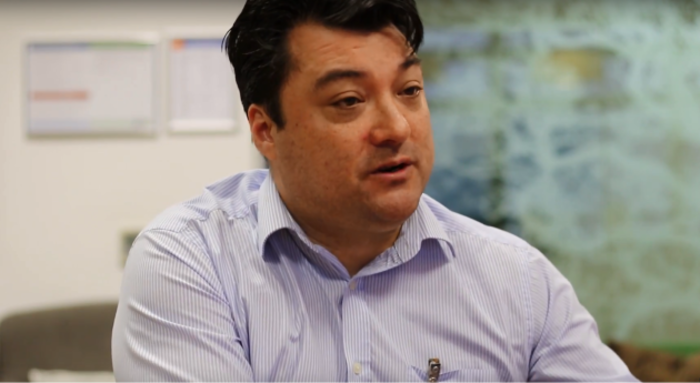Valuations and VCs: The delicate balancing act of how much equity startups should sell
Young firms with unrealistic expectations can scupper their chances of luring investors.
INEXPERIENCED STARTUP FOUNDERS with unrealistic expectations about how much their young companies are worth can jeopardise their ability to attract investors.
That’s according to early stage backers, who routinely deal with Irish entrepreneurs navigating the difficult waters around valuations and how much equity they should sell.
The Halo Business Angel Network (HBAN) invests in startups through its various syndicates of angel investors.
Startups typically sell anywhere between 15% and 30% of their equity in the deals – although that’s highly contingent on how much traction a company already has.
Syndicates manager Julian Seymour told Fora that this range is typical for a startup raising its first investment from angels or a seed fund.
“I would say the biggest problem is that startups overvalue their business,” he explained.
HBAN generally deals with startups with a pre-money valuation of between €1 million and €3 million. The pre-money valuation, at this stage, is a price tag that the startup’s founders have generally placed on their own firm.
 Julian Seymour
Julian Seymour
“With anything north of €3 million, it’s unlikely HBAN investors are going to be interested in it unless the company’s generating pretty good revenue,” Seymour said.
“Their total annual sales might not be over 30 or 40 grand, yet they’re valuing their company at €4 million and they haven’t gone out and actually sold their product or service. That’s just plain crazy.”
Dermot Berkery, a partner at Dublin venture capital firm Delta Partners, which invests in startups at the seed stage, said he has also seen inexperienced founders trying to sell parts of their companies at unjustifiable prices.
“If a startup comes in and wants to value the company at €10 million or €20 million, forget it, it makes no sense for us,” Berkery said.
“We need the chance to make a big multiple on our money if we’re taking big risks. If we invest into a €10 million valuation in a raw startup, the chances of us making five times our money on that are pretty slim.”
However startups shouldn’t get too bogged down on the amount of equity they offer, he said, adding that Delta usually invests in seed rounds where a 20% stake is sold.
No strict rules
Berkery added that there are no absolute rules for startup investing but he employs a “not too much, not too little” approach. The VC firm typically puts its money into startups with valuations of between €2 million and €3 million.
But within those parameters, Delta often finds stark differences between two companies with similar valuations and profiles once it did its due diligence.
“It’s like a house on Ailesbury Road versus one in rural Ballinasloe,” Berkery said. “The same house is worth two very different things.”
He said a startup selling too much equity in its early years could also cause problems for the business further down the line.
“There have been instances where a company raises €750,000 and the pre-money valuation is €1 million – so the post money (valuation) is €1.75 million,” he said.
“Then the investors have taken too much of the company. It’s over 40% … that’s just too much for that investor to have owned at that stage.”
HBAN’s Seymour agreed that founders should retain a “sizeable chunk of equity” to keep them motivated as they continue building their firm. If they sold too much too early, “they would just become an employee in their own company”, he said.
Bootstrapping
Oisín Kim of online medical care startup Webdoctor said that he made sure that his company had a minimum viable product in place and some revenue so it could then negotiate a better deal when it raised €750,000 in 2015.
He said the deal was done at a valuation of around €2 million, with the firm giving up about 20% of its equity.
“Take money as late as possible, that’s always a good thing. Getting to (a product) that you can show people, that they can see and touch, is a good thing,” Kim said.
“I think the further along you are, the lower the risk you can show, the better valuation you can get, the lower the percentage (of equity).
“We weren’t hung up on equity percentages, we were more focused on what the valuation of the business was and whether we felt the person could bring value or not.”
Kim explained that startups should look for “smart capital”, that angel and VC investors would provide advice and guidance as well as money. And before putting pen to term sheet, the “best thing is to get legal advice”, he continued.
 Oisín Kim
Oisín Kim
“In a lot of cases you’re not going to get clauses massively changed but at least you’re going in with open eyes.”
These documents can be dozens of pages long and jammed with legalese. Webdoctor worked with Eversheds Sutherland, one of Ireland’s biggest law firms, to ensure all the founders understood exactly what they were signing.
“I heard a couple of horror stories where people find shareholder agreements that have caused them problems either in subsequent rounds or when the company hasn’t gone well,” Kim said.
Investment agreements may include clauses like hitting certain revenue or profit targets, or there may be stipulations that the startup must set aside a specified number of shares for an employee share-option scheme.
The investors may also require the founders remain with the company for a certain number of years.
“It doesn’t make sense for an investor coming along, putting in a lot of their hard-earned money and then the founding team all leaving and keeping the equity in the business.” Kim said.
Being wise to all decisions at this early stage will have an impact on nearly every aspect of the startup’s future, he added, especially when it comes to raising further funds.
“The issue is that there’s no simple answer. There isn’t a fixed percentage or a fixed value that you should be looking at. Every business is different.”







